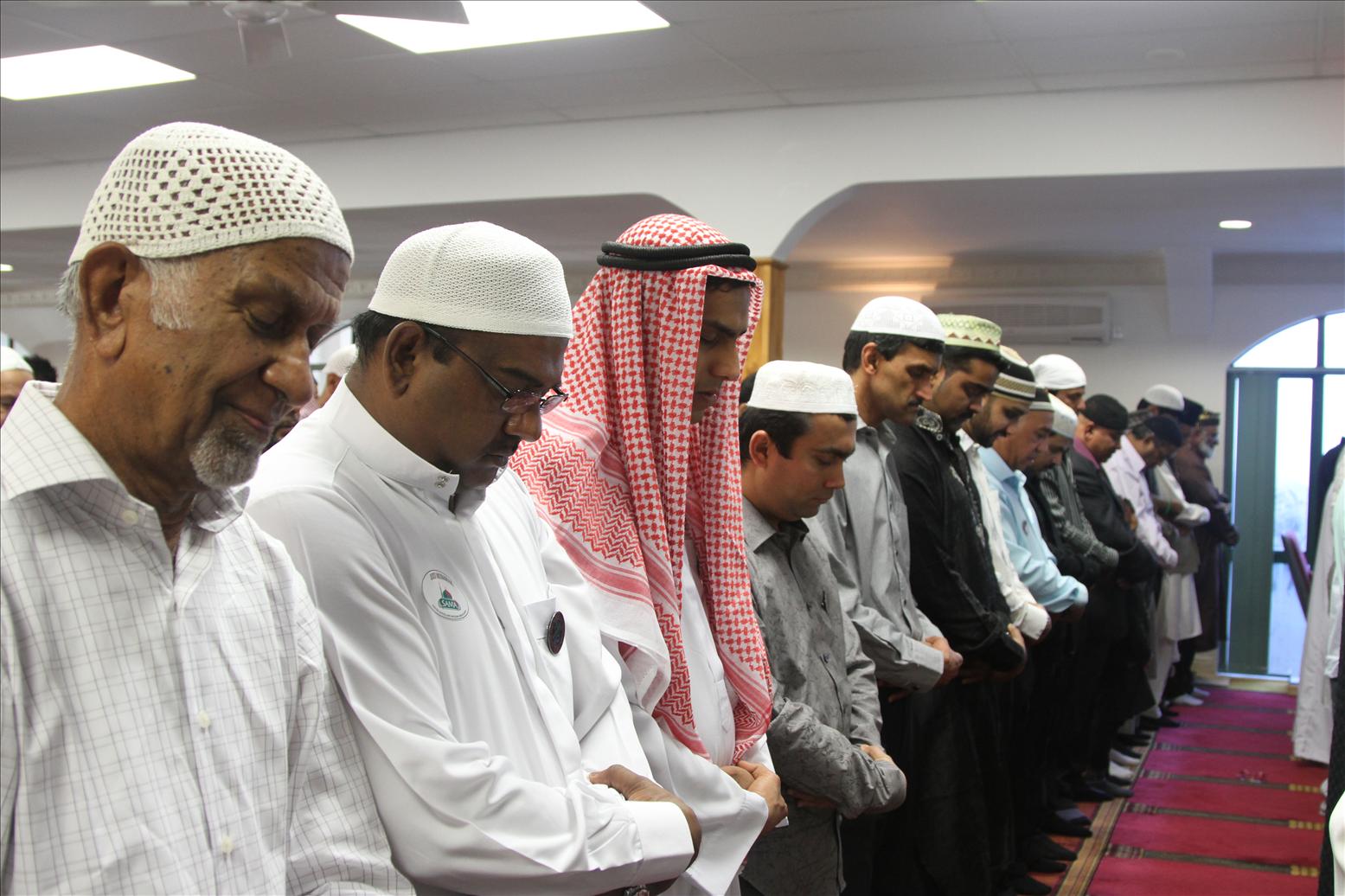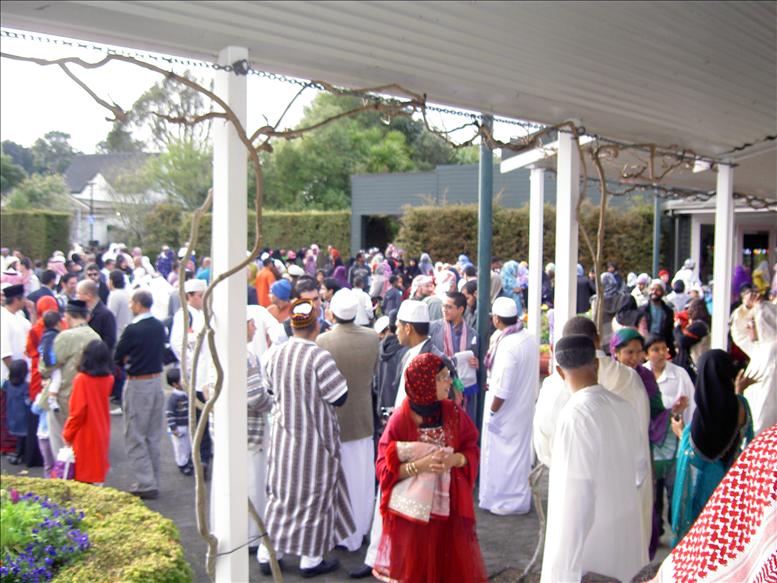The Muslim community all over the world is constantly under attack.
They are criticised as terrorists, political insurgents and worse, as a community that always tries to remain in ghettos, aloof from the main society.
Nothing can be farther than truth.
Muslims are an integral part of every community, society and country in which they live. They are active partners in the economic and development and social progress of the places of their domicile. Among them are Presidents, Prime Ministers, Ministers, Statesmen, Lawyers, Doctors, Engineers and Community leaders to mention a few. All of them are respected members of their respective societies and communities, often taking part in social and even religious festivals of people of other faiths and groups.
Unfair criticism
True, there is disharmony and discard among Muslims, just as there are among people of all other religions and communities. True, there have been, and there continues to be, terrorists who attack governments and properties and kill innocent civilians, who are people of non-combatants. These are a minority, who are condemned by Muslims themselves as ‘destroyers of the Islamic Faith,’ and as ‘people who bring defame to Muslims’ and as ‘detractors from the teachings of the Holy Quran,’ which preaches peaceful coexistence and respect for all religions.
Then again, there are terrorists among almost all other major religions of the world. It is therefore unfair to single out a community and brand its members as purveyors of destruction and intolerant towards Non-Muslims.

The Holy Month
The Holy Month of Ramadan is one of the most important periods in the Islamic Calendar, during which able Muslims fast from dawn to dusk, pray five times a day, abstain from worldly pleasures and promote goodwill and understanding. Iftar gatherings at which people of other faiths are also invited (see separate report of an Iftar evening held at the South Auckland Muslim Association on July 18 in this Section), are symbolic of the Islamic faith- that every human being is equal and everyone should be accorded respect, love and understanding.
Several articles on the importance of the Holy Month of Ramadan, what it means to Muslims and Non-Muslims, appeared in our Ramadan Special (July 1, 2013).
Eid Al Fitr
Depending on the sighting of the Moon, the Holy Month of Ramadan will conclude on or about August 10, followed by three days of Eid Al Fitr.
The spirit of a religious festival manifests itself in fostering the goodness of mankind, in promoting understanding and in the fact that men, women and children of this world belong to a single, large family.
Eid Al Fitr is an occasion to rejoice, forgive transgressions and forget differences-for, what is a world if it cannot keep its people together?
Although not born into the Islamic faith, I have, since my formative years, been drawn to the Muslim fraternity, fostering understanding with a small but well-knit circle of friends, as neighbours, classmates, work colleagues and so on.

Islamic Heritage
Thereafter, my career took me to the Kingdom of Bahrain, where I spent more than two decades, pursuing the journalistic profession and more importantly, endeavouring to learn a little more about Islam. Hailed as the seat of Islamic heritage and the land of the ‘Dilmun,’ to which the legendary traveller Gilgamesh reached in search of the true paradise on earth, I understood the meaning of Islam and its teachings. Perched as the gateway between the East and the West, Bahrain is no more than 1500 Kms away from Mecca (Makkah), which is really the earth’s midpoint and a centre of religious tolerance, in the true spirit of Islam.
For all the explanation that is now given painstakingly by scholars and preachers that Islam does not condone violence, deliberate acts of terrorism and anything destructive conducted in its name, I had learnt the spirit of religious and social tolerance in the little Kingdom. There were and there are no restrictions for Hindus to conduct their religious festivals (Diwali is an occasion which the Bahrainis celebrate with gaiety), Christians to congregate and pray (Christmas is a great day when the entire country switches on the festive mood and New Year’s Day is a public holiday), Jews to have their synagogue, Sikhs to promote their Gurdwaras and so on.
In fact the country’s leadership is so enlightened and benevolent that people are encouraged to pursue their faiths and religious and social diversity are actually celebrated.
The relevance
Why should you reader, know about what goes on in a small island nation of about one million people (of whom more than 45,000 are foreigners who live and work as expatriates) in New Zealand? Is there relevance?
Indeed. People like me, often so indifferent to religious segmentation (because we believe God is One and all people are one) begin to learn about Islam and respect its teachings because we are not forced to do so. A society that practices religious and social tolerance, a country that welcomes foreigners into its midst in good faith and without reservation and an economy that accords equal opportunity to every human being is one that propagates the belief that all human beings are made equal-a belief that forms the core value in Islam and in the Holy Quran.
Strict Codes
Islam does lay down strict codes for its believers to follow (which religion does not?) but there is no prescribed supervision. Like all other faiths-the Ten Commandments of the Old Testament and the Bhagavat Geeta of Hindus-the dos and don’ts are mentioned but to paint a picture of extremity or harshness is unfair indeed. Scholars often say that moderation is a tenet in Islam and those who condemn other religions are not true Muslims at all.
How should Eid Al Fitr be celebrated? Is this a festivity only for Muslims? Interpretations may vary but I believe here again, the Kingdom of Bahrain sets a perfect example. You could almost substitute the words ‘Christmas,’ ‘Diwali,’ ‘Yam Kippur’ or ‘Buddha Poornima’ to ‘Eid Al Fitr,’ ‘Eid Al Adha’ or ‘Eid Al Milad’ and you would find the same festive spirit.
The true spirit
Whether announced the previous night or in the morning or by default at the end of the 30th day (if the Eid Crescent is not sighted), Eid Al Fitr begins with early morning prayers, some of which are attended by even non-Muslims. The fast which officially ends with the Holy Month, and then people-men, women and children-move about greeting the leaders, businesses, colleagues, relatives and friends.
The second day of Eid Al Fitr is spent visiting friends, exchanging good wishes and promoting the spirit of commonality, while the third and final day is devoted to self and immediate family. There is little scope or time for anything other than happiness.
In Islamic countries, it is customary for the Head of State to pardon a number of criminals and order the release of a number of prisoners.
That, I believe is the true spirit of Islam and Eid Al Fitr: to forgive when asked to be forgiven and to forget, even when not asked. To forget the wrong doing of the other is a quality that is promoted in the mood of Eid, provided of course, there is a true sense of atonement on the part of the latter.






